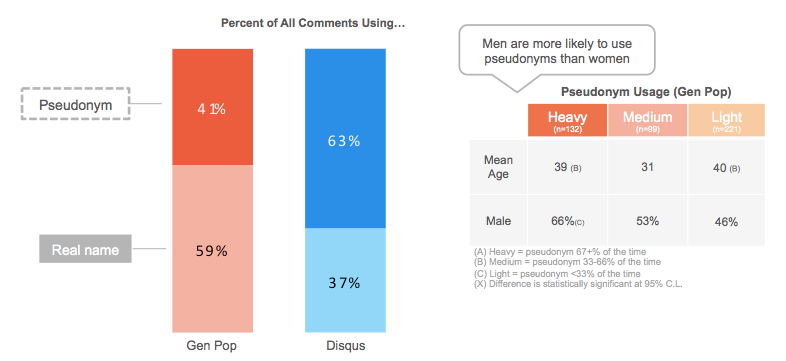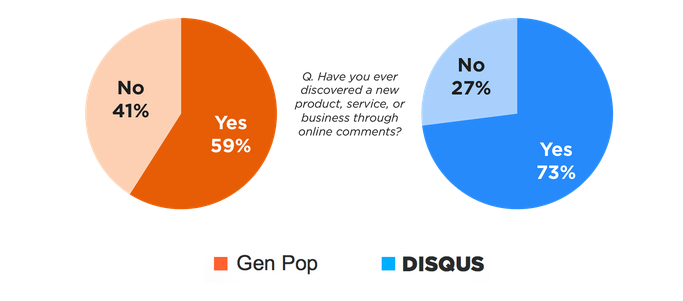At Disqus, we know that people choose to express themselves freely and openly in online communities. They can choose what they want to say, where they want to say it and how they choose to identify themselves when they do. And many of the people who use Disqus do this under a pseudonym — a handle or nickname that isn’t the person’s actual name.
But often times, pseudonyms get a bad rap. Many argue that if we all used verified identities that are common to some social networks such as LinkedIn and Facebook, much of the stuff we all dislike about digital communications channels like trolling and abuse would go away. And some media companies are even giving up on the idea of hosting their own audiences in discussion because of these abuse challenges. (We wrote about that last month here.)
Intuitively, the idea of verified identity increasing civility seems reasonable. However, there’s no reproducible evidence that this is actually true. Jerks don’t wear jerk suits. And limiting everyone, everywhere to their given name takes away from the fun and pleasure of online communities. So we undertook a research project last month to better understand how Disqus and general Internet users think about their choice of identity when interacting online. It builds off previous research we did in 2012.
We worked with NetPop Research to survey over 2,000 people. We asked respondents to evaluate comments placed by people using both real names and pseudonyms, tell us how they identify online and why they do what they do.
How Common is Pseudonym Use?
The general population of Internet commenters use a pseudonym 40 percent of the time according to our research. And when we look at Disqus users as a whole, 63 percent use a pseudonym. Men are more likely to exclusively use a pseudonym. While 54 percent of women use a pseudonym at least some of the time. So it’s clear, pseudonyms are an increasingly popular form of expression which begs the question — why?
Why People Use Pseudonyms
According to research we commissioned, people don’t use pseudonyms to hide. People use pseudonyms to maintain privacy, so they can share their thoughts openly and honestly. The data shows that 70% of people who use pseudonyms do so for privacy reasons. What makes this finding interesting is that there is an increased desire for identity control across all major social networks as people become more privacy conscious.
The remaining reasons people use pseudonyms are because people feel it allows them to have open discussions about touchier subjects. And they see it as a way to express a part of their personality that they’d otherwise keep to themselves.
Does Identity Affect Trust of Comments?
When it comes right down to it, the debate between pseudonymity and real-name transparency could be settled once and for all if people trusted one over the other. And as many people continue to assume, real names are more trustworthy. But the research tells a different story. When we asked a sample of 1,000 general Internet users, they said unequivocally that they trusted pseudonyms and real names equally. But why?
It all comes down to what we’ve known at Disqus for quite some time — it comes down to ideas. The best ideas always win, regardless of who says them. And that also creates credibility for those who share their thoughts and opinions frequently–a reputation for advancing ideas.
Yeah, But That’s for Stuff that Doesn’t Matter Right?
False. In fact, people trust comments by pseudonyms so much that they even consider their opinions before making a purchase, or when learning about a new topic.
The New Yorker cartoon with the famous caption “On the Internet, nobody knows you’re a dog” rings truer than ever today. It’s our hope that this research advances the dialogue about online civility with the knowledge that identity matters little while the substance of contributions matters a lot.
If you’re interested in reading our full report, register here. You can also find more information about Disqus data on our website.





